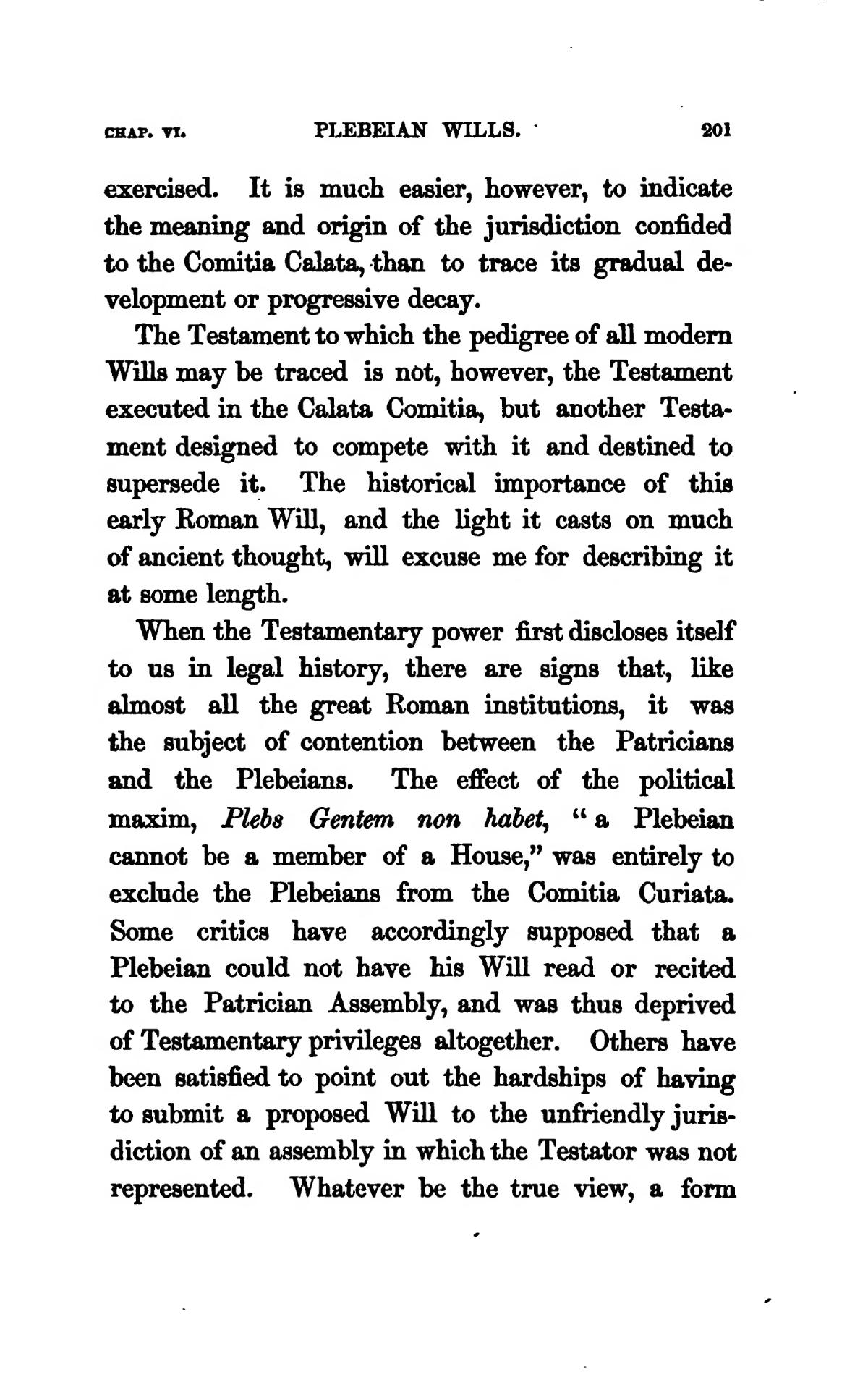exercised. It is much easier, however, to indicate the meaning and origin of the jurisdiction confided to the Comitia Calata, than to trace its gradual development or progressive decay.
The Testament to which the pedigree of all modern Wills may be traced is not, however, the Testament executed in the Calata Comitia, but another Testament designed to compete with it and destined to supersede it. The historical importance of this early Roman Will, and the light it casts on much of ancient thought, will excuse me for describing it at some length.
When the Testamentary power first discloses itself to us in legal history, there are signs that, like almost all the great Roman institutions, it was the subject of contention between the Patricians and the Plebeians. The effect of the political maxim, Plebs Gentem non habet, "a Plebeian cannot be a member of a House," was entirely to exclude the Plebeians from the Comitia Curiata. Some critics have accordingly supposed that a Plebeian could not have his Will read or recited to the Patrician Assembly, and was thus deprived of Testamentary privileges altogether. Others have been satisfied to point out the hardships of having to submit a proposed Will to the unfriendly jurisdiction of an assembly in which the Testator was not represented. Whatever be the true view, a form
